You finally decided to use the best flooring solutions for your home; but, you just can’t get the best way to replace the floor in your house. You start asking yourself whether to install porcelain tiles or vinyl planks. And, you search out “Vinyl Plank Flooring Vs. Porcelain Tiles: which is better?” You’re at the right place!
So what’s the difference between the vinyl plank flooring versus the porcelain ceramic tile? While both the porcelain plank and vinyl flooring mimic hardwood in their appearance, they are pretty different. The vinyl plank flooring consists of synthetic polyvinyl chloride PVC material that comes in three main layers. Then porcelain tiles are refined clay made by firing up natural elements in the kiln to form a stony or wooden-like material.
But the vinyl plank versus porcelain tile debate goes deeper than just its composition. In this post, we will analyze each of the flooring materials. Which flooring solution is the best in terms of material, aesthetics, maintenance, installation, and pricing? Let’s see!
Table of Contents
Vinyl Plank Flooring Vs. Porcelain Tile flooring Comparison Chart
| Features Of Flooring Solution | Vinyl Flooring | Porcelain Tile flooring |
| Material | Poly Vinyl Chloride (PVC) synthetic material | Ceramic Porcelain |
| Installation | Mortar and grout | Floating interlocks or the direct glue down |
| Aesthetics and Appearance | It comes in a wide range of beautiful designs, patterns | It comes in a wide range of beautiful designs, patterns |
| Maintenance and cleaning | Use steam and wet mops.
You require non-abrasive cleaning with mild cleaners |
May need intense scrubbing |
| Durability | Soft and fades when exposed to sunlight for long | One of the most durable flooring materials |
| Water resistance | Fully waterproof | Fully waterproof |
| Fading | Fades | Does not fade |
| Heat insulation | Insulates the floor against heat or cold | Conducts heat, and thus very cold during the winter |
| Price | One of the cheapest flooring solutions | More expensive than vinyl. |
| Home Reselling | Adds little value for reselling | Adds to the value of your home |
What is Vinyl Plank Flooring?
Vinyl plank flooring consists of synthetic plastic material with several different layers and looks like natural hardwood. And, although it is primarily polyvinyl chloride (PVC), the flooring makes your house look totally natural.
The three main layers that make up a vinyl plank flooring are:
- Core or Base: The base forms the foundation or Sometimes it can be rigid and other times flexible depending on the unit.
- The design layer: This layer determines how the vinyl plank looks and feels. It could mimic natural wood, stone, ceramic tiles, or anything else.
- The surface layer: Also known as the anti-wear protection, this layer ensures that the vinyl plank gets damaged or faded by UV light. In most cases, the surface layer is transparent.
Vinyl planks are a favorite for many builders, especially for the kitchen and bathrooms. Planks are slightly cheaper than natural flooring materials because they are synthetic.
However, you need to choose between luxury vinyl flooring (LVF) and luxury vinyl plank flooring (LVT). Vinyl plank flooring is thicker than the other materials due to the fabrication. You snap them together using the groove and tongue connection or so-called click-lock.
Initially, most vinyl planks mimicked natural hardwood. The material looks like several other materials, including marble, stones, granite, and ceramic. If you want a cheap, convenient, and versatile floor, the vinyl planks will make a good start.
Advantages and Disadvantages of Vinyl Plank Flooring
Pros:
- Easy installation or DIYers
- Simple maintenance
- Fully waterproof
- Durable
- Heat insulation
Cons:
- Not as prestigious as hardwood or ceramics
- Replacing damaged planks is difficult
What is Porcelain Tile?
Porcelain tiles are simply defined as clay heated up in a kiln and transformed into a concrete-like material. This clay-based material makes a subtype of ceramic tiles harder and more durable than ordinary ceramic tiles.
Many homeowners like the porcelain tiles because the color runs through the entire thickness. Again, you can choose either the glazed or unglazed tiles. Glazed porcelain tiles only have the glass at the top, but others have full-body glassing that makes them durable and resistant.
Porcelain is the most durable in the market. But, they are also tougher, denser, and harder. If you’re looking for a flooring material that’s less porous than ordinary ceramic tiles, then porcelain fits in perfectly.
The absorption rate of the porcelain tiles is low and sometimes even impervious to any water penetration or damage. So, the porcelain tiles are ideal for areas of your house that are constantly interacting with water, such as the bathroom patio or laundry room.
Again, the porcelain can stand pressure and is heavyweight and, therefore, is suitable for your home areas with heavy traffic. That’s the reason you will find the porcelain on the floor or countertop.
However, you have to put up with the price and installation or cutting methods of the porcelain tiles. A porcelain tile can cost as much as 60% more than other ceramics. Again, the density and hardness of porcelain make it hard to cut to size unless you have a diamond blade.
Porcelain Tile Pros
- Low maintenance
- Resistant to wear and tear
- Supports high traffic and weight
- Beautiful
- It comes in a wide selection of designs
- Moisture resistant
- It is one of the most durable flooring materials
- Easy to clean and maintain
Porcelain Tile Cons
- Requires complex installation procedures
- Heavier than other flooring materials
- More expensive than the vinyl plank
- Difficult to repair or replace
Vinyl Plank Flooring Vs. Porcelain Tile: The Main Differences
If you want the timelessness of hardwood without the high maintenance costs and water soaking, then you have two flooring options. The vinyl flooring and porcelain plank tiles will give you a positive way to mimic any type of design you wish.
But which is better: vinyl flooring or porcelain tiles? Here we cover the main differences between the porcelain ceramic tiles and the synthetic vinyl plank flooring materials.
Installation: Vinyl planks are easier to install than Porcelain tiles
The process of installing floor solutions has a direct impact on the pricing. So, how does the installation of porcelain tiles compare with vinyl planks?
Installing the luxury vinyl planks depends on the size and type of vinyl you have. For instance, if you have a floating floor vinyl that comes with tongue and groove locking systems, all you need is to click them together. This requires less floor preparation.
Then, if you have the direct glue down planks, you will need an adhesive. Overall, luxury vinyl planks are the most straightforward flooring solutions to install.
Installing ceramic porcelain tiles is difficult, especially when you have no professional skills. You require a subfloor preparation as an uneven subfloor could cause cracking.
Then, you have to set the tiles on a thin layer of water. You apply the grout between the tiles.
In the end, you will also have to clean off all the grout as it can be messy. This may require you to use some corrosive chemicals such as acids and other cleaners.
Aesthetics and Appearance: A draw
While hardwoods offer a limited choice of color, styles, and sizes, vinyl and porcelain give you a wide range of selections.
Vinyl planks can be in any style, color, or shape. For instance, you can find those that look like wood or other patterns. So, if you want rustic, traditional, modern, hickory, or wood oak patterns, you can find them with either porcelain tiles or vinyl planks. You also get to choose between different sizes and styles.
Maintenance: A Draw!
In comparison to hardwood flooring, both vinyl and porcelain are far easier to maintain and care for. The vinyl surface is smooth, and therefore all you need is a broom, dust, or mop, and the place will be clean.
You can also use a vacuum cleaner for hard surfaces. As long as you remove the dust and debris, the material will get back to its shiny look.
However, you don’t want to wax it to avoid unwanted build-up. Instead, wash away the unwanted ink or marks with nail polish remover or acetone.
Cleaning porcelain tiles required have a vacuum cleaner broom or dust mop. Mild cleaners and warm water will handle the more intense messes.
Durability: Porcelain lasts longer than Vinyl
Luxury vinyl planks are durable because they don’t react readily with the environment. The synthetic material resists water and most chemicals and therefore does not rot or rust.
However, the material isn’t entirely immune from damage. Synthetic fibers are softer than ceramic tiles and, therefore, can quickly wear out. Also, the vinyl planks may fade in color when they are exposed to sunlight for a long.
Porcelain tiles are mainly ceramic, and they are highly durable. Ceramic is harder than both vinyl and wood and resists scratches, fading, and dents, as well as other damages.
However, porcelain is not utterly indestructible because it can crack. If you hit the tiles with something heavy, it’s likely to chip or break.
Water resistance: Vinyl Ties with Porcelain
If you’re considering a flooring solution apart from hardwood, it’s probably because of its water resistance. Hardwood does not resist water, and therefore it’s not ideal for bathrooms or kitchens.
But, vinyl planks are entirely water-resistant. If you install the planks correctly and leave no spaces between the gaps, you will not experience buckling, warping, or staining.
In the same way, porcelain resists water completely. As long as you do a proper installation, you won’t have to worry about grouting, staining, and moisture.
If water seeps through the gaps of porcelain due to improper installation, it could create stains and a damp smell. The same case with vinyl planks would make the material warp, stain, and buckle.
Verdict: Should I Install Vinyl Plank Flooring or Porcelain Tile?
Both vinyl and porcelain flooring solutions offer excellent alternatives to the traditional hardwood floor. However, they are different in a lot of ways.
If you’re looking for a durable solution, then the porcelain ceramic tiles are better. But if you want to achieve easy installation and maintenance and a comfortable flooring solution, then the inner planet is the clear winner.
Which is your favorite flooring option: vinyl plank or porcelain tiles?
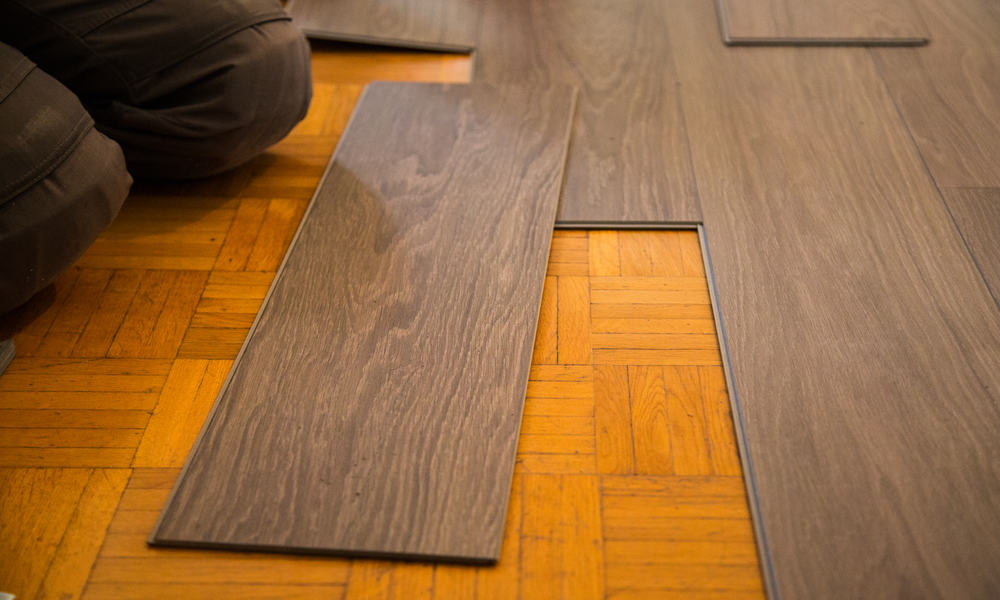
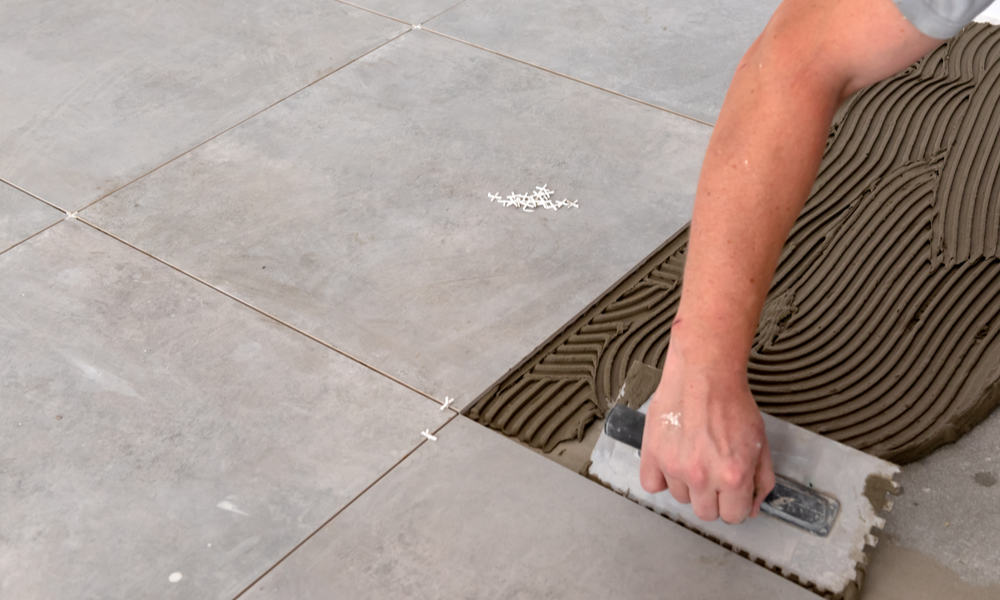
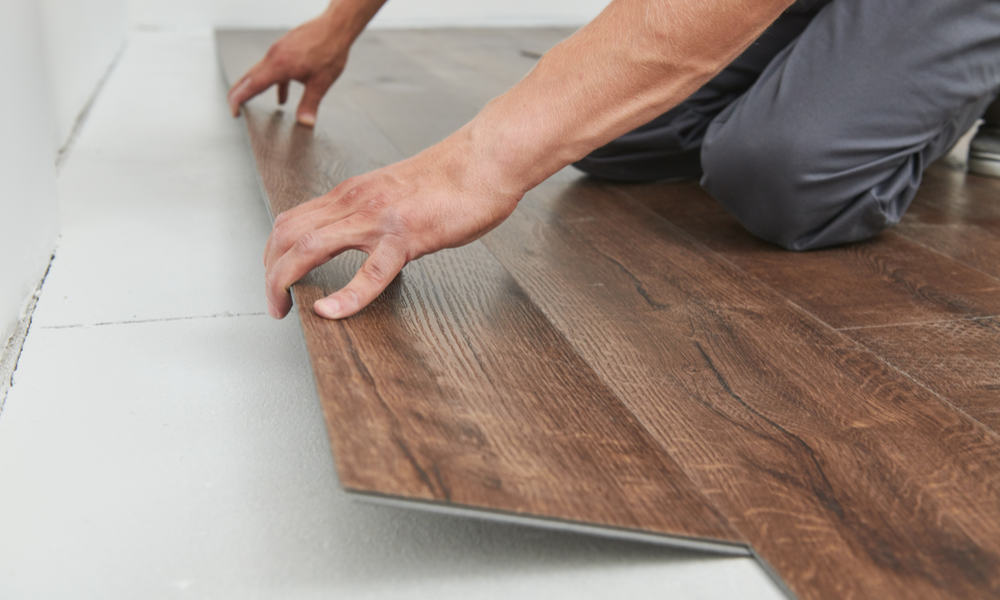
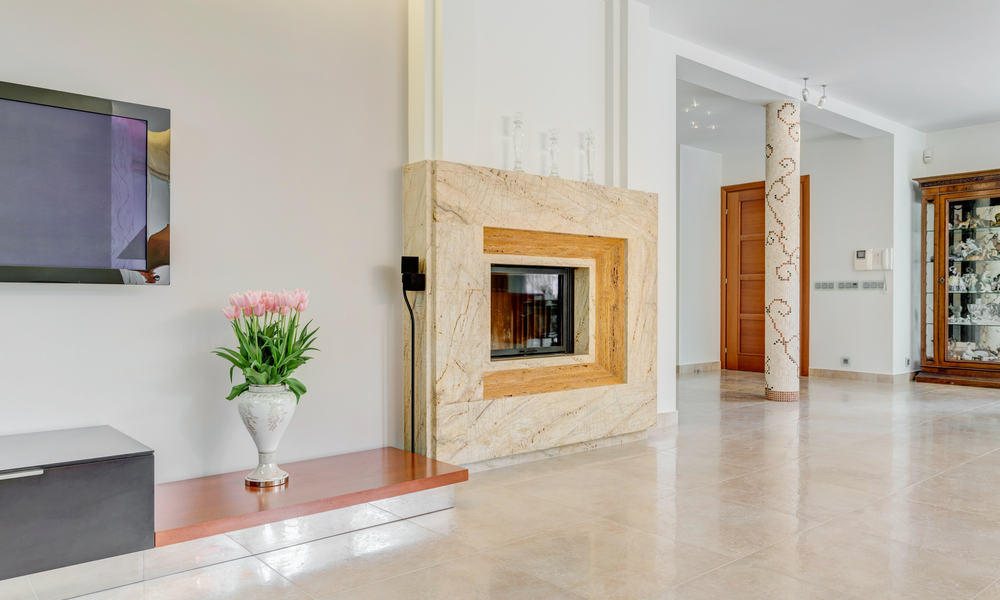
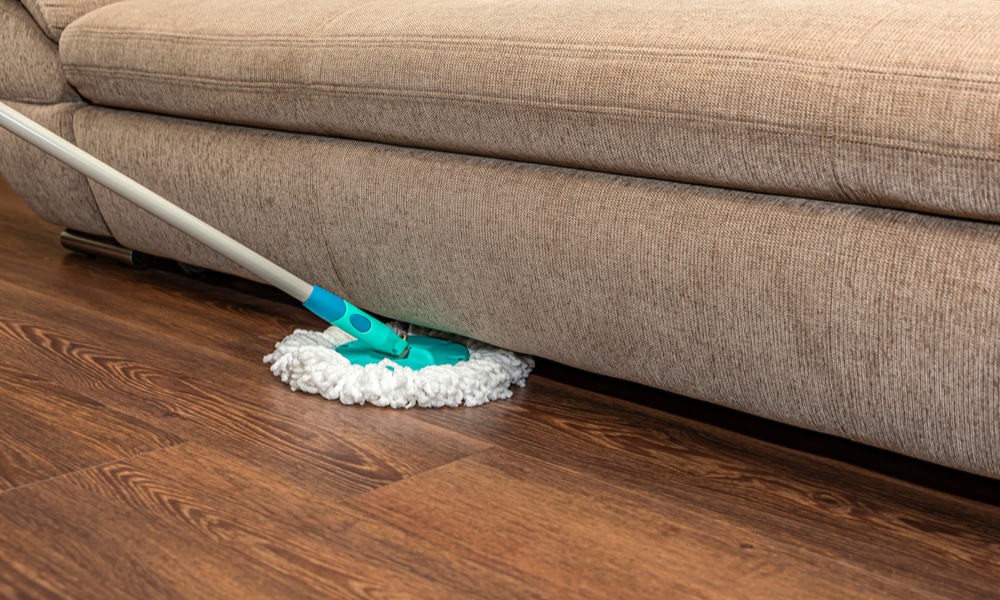
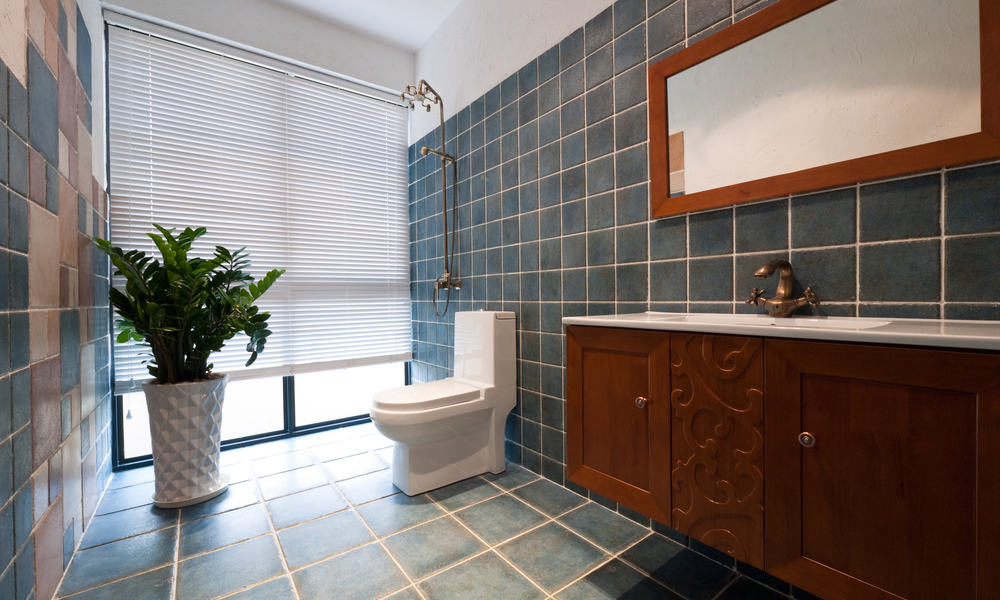
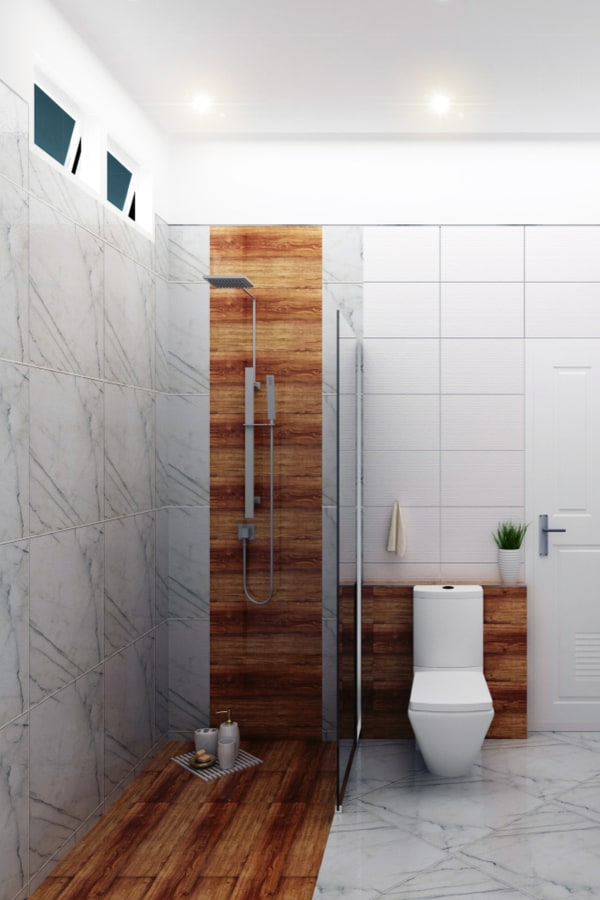
In the final comparison of porcelain vs vinyl planks, you state the major differences but say “inner planet is the clear winner.” Do you mean vinyl planks?